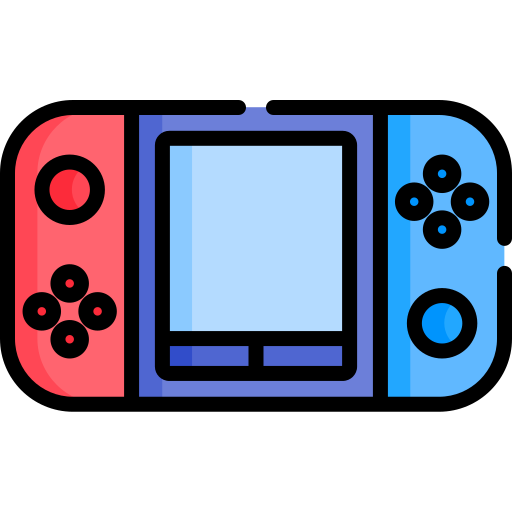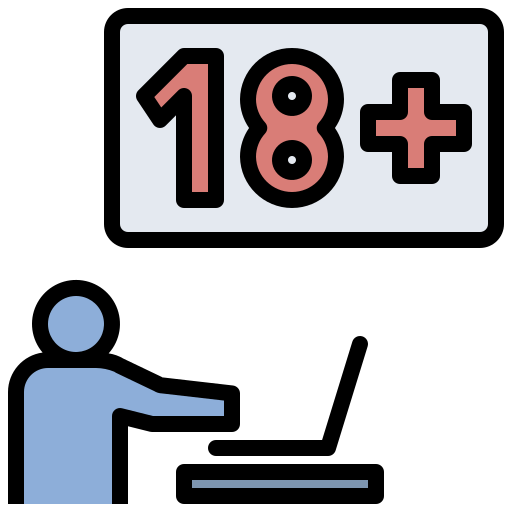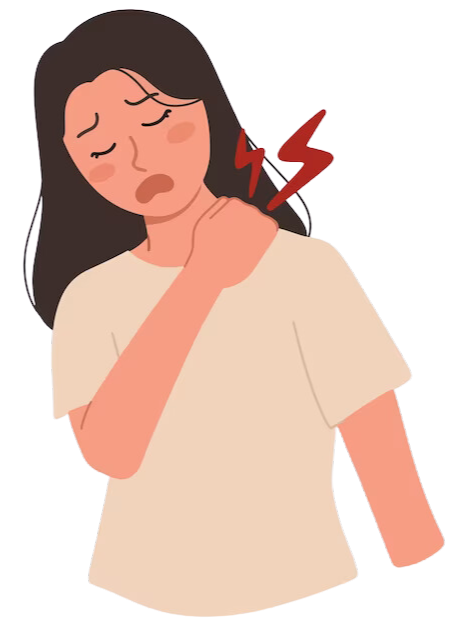Cyber Youth Addiction
- Nov 11, 2024
- 6 min read
Introduction
Studies have shown that 99% of Singaporean teenagers are Internet users, with the most commonly used platforms being social networking and gaming sites.
Although engaging in these online activities can bring joy, it becomes an cyber addiction when these activities affect the individual's well-being.
Disclaimer: It is easy to both misidentify or overlook cyber addiction. Please seek professional advice when in doubt.
Type of cyber addiction
1. Online Relationship Addiction
When an individual is so focused on their online relationships, they start ignoring their real-life relationships (friends/family).
An example would be an individual having an online romantic partner and spending all their time on chatting with this partner while ignoring their friends and family in real life.
Another example would be an individual feeling the need to constantly connect with their online followers, thus neglecting their real-life relationships.
2. Gaming Addiction

When an individual is excessively focused on playing games and winning in them.
Note that although many PC/mobile games require the internet, gaming addiction can also occur in offline games.
3. Net Compulsions
Individuals with net compulsions use the internet as a platform to fulfil certain obsessions including online gambling or shopping.
For example, an individual may feel a strong urge to be on an e-commerce site all the time to bag vouchers or discounts to the extent that they cannot focus on other areas in life.
4. Information Seeking
A type of hoarding behaviour where the individual is obsessed with learning new information and organising the knowledge.
This may be common in individuals who have a fear of “losing out”.
5. Cybersex Addiction

Individuals with cybersex addictions place excessive focus on online pornography, sexual fantasy websites etc.
These platforms interfere with and replace the building and maintenance of real-life romantic relationships.
Signs of Excessive Cyber Use
Excessive cyber activities can cause harm, but they can do good if in moderation.
For example, motion-controlled games burn as many calories as walking on a treadmill, whilst games with puzzle or problem-solving elements can help strengthen one’s memory, problem-solving and decision-making skills. Fast-paced action games that often require quick responses have helped players increase their decision-making speeds by 25%, while retaining decision accuracy. There have even been studies showing that gaming helps with eyesight. Besides that, online activities may also be a source of emotional comfort.
It is thus crucial to make the distinction between excess and moderation. In a time where much of our work and daily activities rely on cyber connectivity, the key is to look out for signs of harm that a person’s cyber activities are causing. These signs of excessive cyber engagement are reflected in the following non-exhaustive list:
General signs that may point to cyber addiction:
A trend of spending an increasing amount of time gaming, or using the internet, before finally achieving satisfaction
Irritability or violence when the individual is disallowed from, or not using the internet
Worsening academic or work performance as a result of internet usage
Social withdrawal to engage in gaming/internet usage
Loss of interest in previously enjoyed activities
Denial or secrecy about the amount of time spent on the internet
Effects of Cyber Addiction

Physical Effects
Weight fluctuations
Neck aches and backaches
Strained eyes and blurred vision
Sleep disturbances
Psychological Effects
Worsened attention span
Memory impairment
Difficulty in differentiating reality from fantasy
Social Effects
Impaired social skills
Loss of relationships or decreased quality of relationships
Why does Cyber Addiction Occur?
The internet and games may be providing the individual solace and an escape from real-world problems they perceive they cannot resolve. These problems may be causing the person to feel overwhelmed, stressed, depressed, lonely or anxious, and may be related to issues including school or work stress, relationship and family issues and social anxiety
The individual may be seeking emotional support that they lack in real life from online friends or an online community.
Using the internet can trigger the same reward pathways in the brain as addiction. For example, video games produce a significant amount of dopamine in the brain which drives the impulse to continue with the activity.
Another example is social media usage. Self-disclosure on social media also activates the same parts of the brain as addictions.
How Can We Help?
An individual’s cyber addiction may be their method of coping with problems they perceive they cannot resolve. Thus, forcing the individual to stop engaging in their online activities, which they perceive are helpful, will likely result in resentment or even further non-compliance.
A better way to help would be to seek to understand and comfort the individual. Here are some ways:
Help the individual resolve their real-life issues that may be causing them to seek escape in their cyber addiction. You may need the help of a trained professional.
Set ground rules that the person is agreeable to. This may be a restriction on the duration of their cyber activities, or limiting them to certain times of the day.
Note that these restrictions should start small and be reasonable and achievable; they can gradually be increased later. You may wish to google ‘S.M.A.R.T. goals’ to understand how to set successful restrictions.
Through understanding what positive feelings or outcomes the individual is gaining from their cyber activities, seek to replace those activities with healthier and less addictive alternatives that create similar positive outcomes
School teachers/mentors: If there are changes to a student’s behaviour in school (increased lethargy, difficulties concentrating, worsening academic performance), explore why this may be the case with the student. Try to come from a place of kindness and non-judgement, avoiding sounding accusatory.
Parents: Seek to understand your child’s reasons for cyber addiction. Adopt a kind, non-critical and conducive interaction style with them and use the above tips to help modify their behaviour. If you feel that counselling or therapy might be helpful, ensure you get your child’s agreement and respect their decision. Let your child know that you love them as they are and you are not trying to fix them. Rather, you hope to guide them on creating changes that could better their lives. Let them know that you are keen to help them with all their problems, and not just the cyber/gaming addiction. Be open and accepting of your child’s feedback. For more info, go to https://www.help123.sg/articles/how-to-get-my-child-down-for-counselling/
Friends: Seek to understand what your friend might be going through and see if it is indeed causing them problems in their lives. Do not criticise, and use a kind and understanding interaction style. If you are not an adult, consider seeking help from trusted adults.
Whatever method you choose to help the individual, ensure you do not take their sense of agency away. Empowering the individual to help themselves ensures they will self-regulate even when no one is actively enforcing the restrictions.
Interventions
How do I know if I have a cyber addiction?
If you are unsure whether you have a cyber addiction, try the Internet Addiction Test (IAT) by Dr Kimberly Young (1998).
This 20-question self-assessment gauges the presence and severity of internet addiction. However, it is important to note that the assessment is NOT meant to be a diagnostic tool. If you suspect that you may have an internet addiction after taking the assessment, we highly encourage you to seek professional help.
You can access the IAT here:
http://www.iitk.ac.in/counsel/resources/IATManual.pdf
Interventions
Where can I seek help in Singapore?
If you are looking to seek help for cyber addiction, we would first like to applaud you for taking the first step! It takes a lot of courage to admit there may be an issue you need help with.
We have collated a few resources which are useful not only for individuals who may have cyber addiction, but also for their loved ones:
1. Internet and Gaming Addiction (IGA) Intervention By WE CARE Community Service
Structured therapy programme (6 individual sessions, optional 2 family sessions)
Conducted by trained addiction specialists
2. Help123 by Touch Youth Intervention: One-Stop Service for Youth Cyber Wellness
(https://www.touch.org.sg/about-touch/our-services/touch-youth-intervention-homepage)
Reach out by email hello@help123.sg or call 1800 6123 123
SPARX programme: for ages 9-12 to improve self-management and regulation
DigitalMINDSET programme: for ages 12-21 who are experiencing struggles due to excessive gaming/device use. These struggles include: academic problems, emotional and communication problems, irregular sleep or diet, stealing or lying to feed the device-use habits
Consists of individual sessions and optional group and family sessions
Parents concerned about their children can call in
These programmes are also used by MOE schools
3. All Addictions Hotline
Call 6732 6837 (6-RECOVER)
No matter the intensity of your addiction, help is always readily available. Remember, taking the first step to get help is a sign of strength!
Written by: Victor Ho, Xavierlyn Tan┃ Edited by: Wong Su Ting┃Designed by: Xavierlyn Tan




Comments